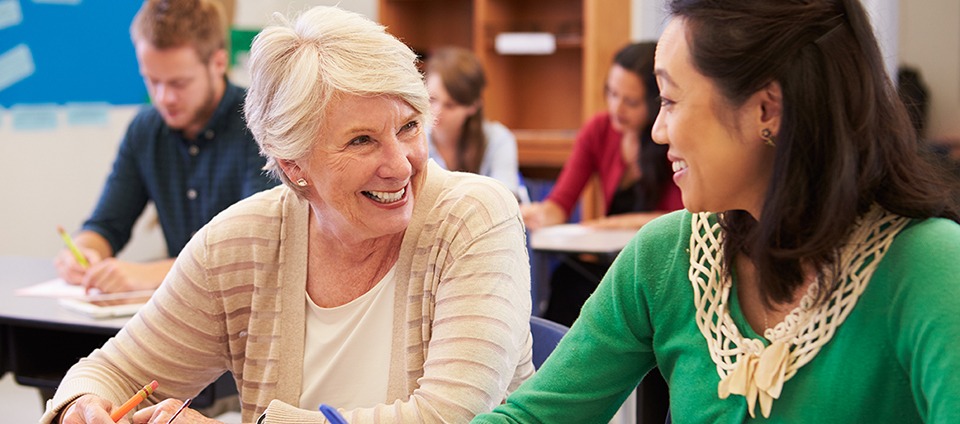Retain Your Passion for Learning

Children are natural scientists. They are curious about the world. Nothing is more precious or heartwarming than watching children discovering the world around them.
When colleges talk about “lifelong learning,” they mean more than the professional development and training needed to keep job skills up to date. Colleges hope to rekindle in their students an insatiable love of learning, the joyful curiosity they had as children.
Great scientists never lose their sense of wonder
The year 1609 found a 45-year-old Italian professor—Galileo Galilei—intensely curious about a reported spyglass constructed by a Flemish inventor. Galileo proceeded to make a series of his own telescopes, each one with stronger and sharper lenses. Turning his new instrument to the sky, Galileo was the first to know and tell the world what the heavens were truly like.
Galileo’s discoveries of the landscape of the moon, the innumerable stars of the Milky Way and the four moons of Jupiter lent support to Copernicus’s theory that the Earth and planets revolved around an immobile sun (a heliostatic system) and discredited the Earth-centered geostatic system of Ptolemy. This in turn led to the new science of dynamics that marked the beginning of modern physics.
Bernard Cohen, in his 1960 book The Birth of a New Physics, described the impact of Galileo’s discoveries:
“Prior to 1609, the Copernican system had seemed a mere mathematical speculation, a proposal made to ‘save the phenomena.’ The basic supposition that the earth was ‘merely another planet’ had been so contrary to all the dictates of experience, of philosophy, of theology, and of common sense that very few men had faced up to the awesome consequences of the heliostatic system.
“But after 1609, when men discovered through Galileo’s eyes what the universe was like, they had to accept the fact that the telescope showed the world to be non-Ptolemaic and non-Aristolelian, in that the uniqueness attributed to the earth could not fit the facts. There were only two possibilities open: One was to refuse to look through the telescope or to refuse to accept what one saw when one did; the other was to reject the physics of Aristotle and the old geocentric astronomy of Ptolemy.”
Discovering universes big and small
The discovery of the world of bacteria by the Dutch merchant Antoni van Leeuwenhoek (1632-1723) is a parallel example, using lenses to examine the minute rather than the infinite.
Accustomed to examining the quality of the cloth he sold with a magnifying glass, Leeuwenhoek developed his lens-grinding abilities to yield stronger and clearer lenses. After fashioning a simple microscope, Leeuwenhoek, curious as to what he might find, examined a vial of water.
To his amazement, he found that “the whole water seemed to be alive with these multifarious animalcules. This was for me, among all the marvels that I have discovered in nature, the most marvelous of all; and I must say, for my part, that no more pleasant sight has ever yet come before my eye than these many thousands of living creatures, seen all alive in a little drop of water, moving among one another, each several creature having its own proper motion.”
Daniel Boorstin, in his 1983 book The Discoverers, could only imagine Leeuwenhoek’s surprise: “If Galileo was so excited by distinguishing stars in the Milky Way and four new satellites of the planet Jupiter, how much more exciting to discover a universe in every drop of water!”
What can you discover?
Will you make path-breaking discoveries, like Galileo and Leeuwenhoek? It’s not impossible, with the proper education and dedication.
“Chance favors the prepared mind,” French chemist Louis Pasteur reminded us.
Much more important than the admittedly small odds of joining such scientific luminaries is experiencing for yourself the joy and wonder of discovery. Approach your studies with an open and enquiring mind, be hungry for knowledge, push your instructors to guide you to the lenses of discovery. Ask yourself the “why” questions and be relentless in your search for evidence and answers.
Be a child again. Be curious.